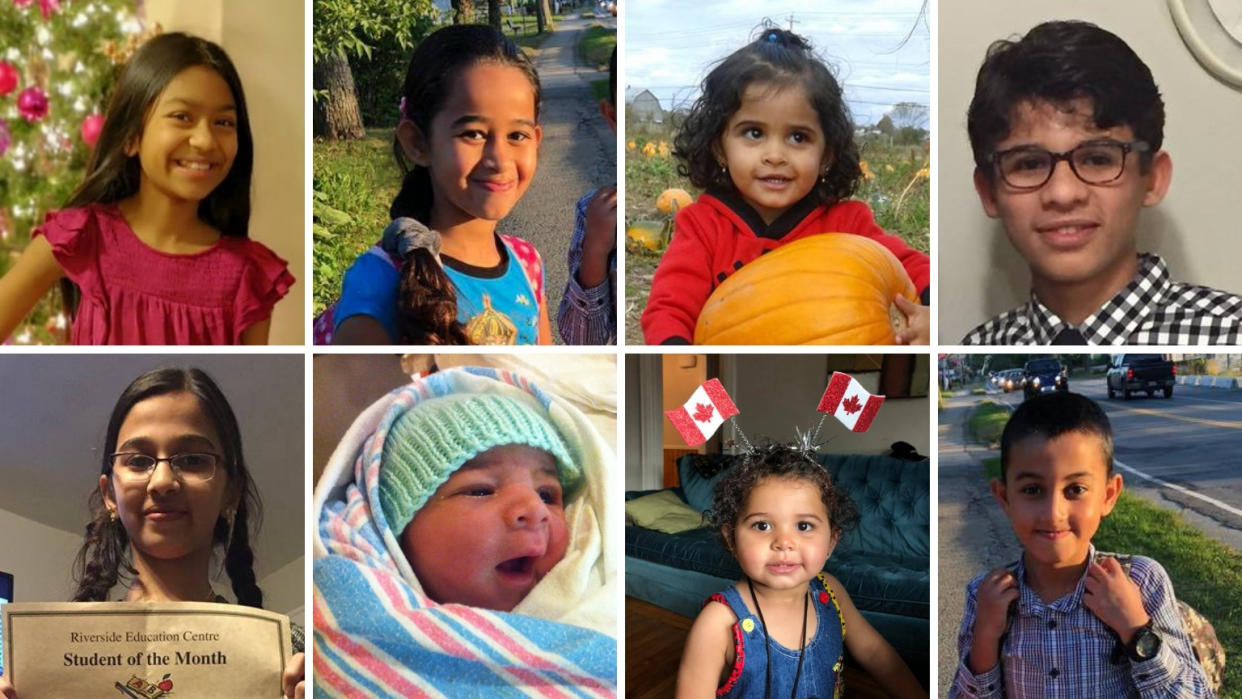How to cope with this week's tragic news stories

Eight young lives were cut short in separate traumatic incidents in Canada this week, the stories reported in sometimes painful detail.
First there was Riya Rajkumar, the little girl whose Amber Alert was cancelled after police found her body at her father’s home in Brampton, Ont.
Riya’s mother, with whom the 11-year-old lived in Mississauga, Ont., contacted police when Riya’s father failed to return her home at the end of a visit on Feb. 14, her birthday.
By the time police tracked down Roopesh Rajkumar and forced their way into his home, it was too late for Riya. Roopesh Rajkumar later died from a self-inflicted gunshot. Before he died, police charged Rajkumar with first degree murder in Riya’s death.
Then, on Feb. 19, Ahmad, Rola, Mohamad, Ola, Hala, Rana, and Abdullah Barho — all children between the ages of 14 years and three months old — died in a house fire at their home in Halifax, N.S.
The children came to Canada as Syrian refugees with their parents in 2017. Their father, Ebraheim Barho, sustained life-threatening injuries trying to save them as their mother, Kawthar Barho, ran for help.
Often, when a tragedy like a violent crime or a deadly fire occurs, the people closest to the epicentre of that tragedy have access to supports like grief and trauma counseling.
But distressing events can also affect the people who follow them in the news and become personally invested, says grief and trauma expert Karen Letofsky, especially when reports employ repetition and shocking imagery.
“That can have an impact with respect to inducing an emotional reaction,” Letofsky said, adding that the impact might not be obvious in every person. “It’s going to be on a continuum from somebody that’s severely affected to somebody that’s momentarily distressed.”
“Sometimes it’s forcibly having to restrain yourself and give yourself a time-out.”
Letofsky said someone who is impacted by a traumatic news story, or who is over-consuming traumatic news stories, might show behavioural changes such as increased irritability and anger.
And the risk of being negatively affected by the news may be higher in people with past traumas, who are more vulnerable to emotional triggers.
“If you have been traumatized before, if you are in an emotionally vulnerable place in your own life, I think the triggers and what it takes to have an emotional impact on you might be less intense,” Letofsky said, “than if you are in a place in your life where you are not as vulnerable.”
“It can numb you and deaden you, so that you don’t have an appropriate emotional reaction.”
Alternatively, she warned some people may become desensitized by overexposure to stories about violence, trauma and tragedy, which is not a healthy response.
“If you’re constantly hearing these stories and they’re reported in a matter-of-fact way…It can numb you and deaden you, so that you don’t have an appropriate emotional reaction,” Letofsky said. “So that’s the flip side.”
How to self-assess and cope
People occasionally approach Letofsky, a longtime grief counselor, with concerns about their emotional involvement with stories, with ruminating on them and dreaming about them. She tells those people “sometimes what you need to do is walk away.”
That means moderating access to the news by reading and revisiting a story once or twice, then taking a break.
“You really, really need to do it,” Letofsky said. “Sometimes it’s forcibly having to restrain yourself and give yourself a time-out.”
Aside from limiting exposure to traumatic stories, Letofsky said the keys to staying healthy are general self-awareness and self-care. That means paying attention to mood changes and maintaining healthy habits and relationships.
“So finding some balance, getting a little physical exercise and focusing on some of the good things in your life,” she said.
Letofsky recommended reaching out to friends and family for support, but warned that if symptoms are severe enough, sufferers should consider seeking professional help.
“If it goes on too long and it’s impacting your sleep and your appetite and your ability to interact with others or go to work,” she said, “then you really need to seek some help.”
Supporting children
For people who are not actively looking for them, the signs of trauma can go undetected, particularly in children, who may be hesitant or unequipped to discuss their feelings with adults.
Fortunately, there are symptoms of grief and trauma that parents can look for.
“It’s really important for adults not to project their fear onto their kids.”
“If your kids are having nightmares and showing a lot of anxiety and fear, that may be a sign that they have been impacted,” Letofsky said.
The way parents interact with their children during times of anxiety and uncertainty can ease or exacerbate their symptoms. Letofsky said parents should be careful not to project their fears onto their children and should make sure conversations about news and current events are age-appropriate.
“It’s really important for adults…not to use their kids as a source of support by talking about [their own fears],” she said.
“And to always include resources for the kids and reassurance for their security, that things are stable, that they will be there for them with an invitation for them to come speak.”
Finally, Letofsky said, both adults and children need to understand that negative reactions to traumatic events are natural, and that they need to be gentle on themselves and others.
“It’s really important not to blame yourself or think you’re weak,” she said.
“It’s not that we’re doing a bad job, we just need to learn to how to manage…and I think resilience comes from self-awareness, self-care, and the ability to find what works for you.”


